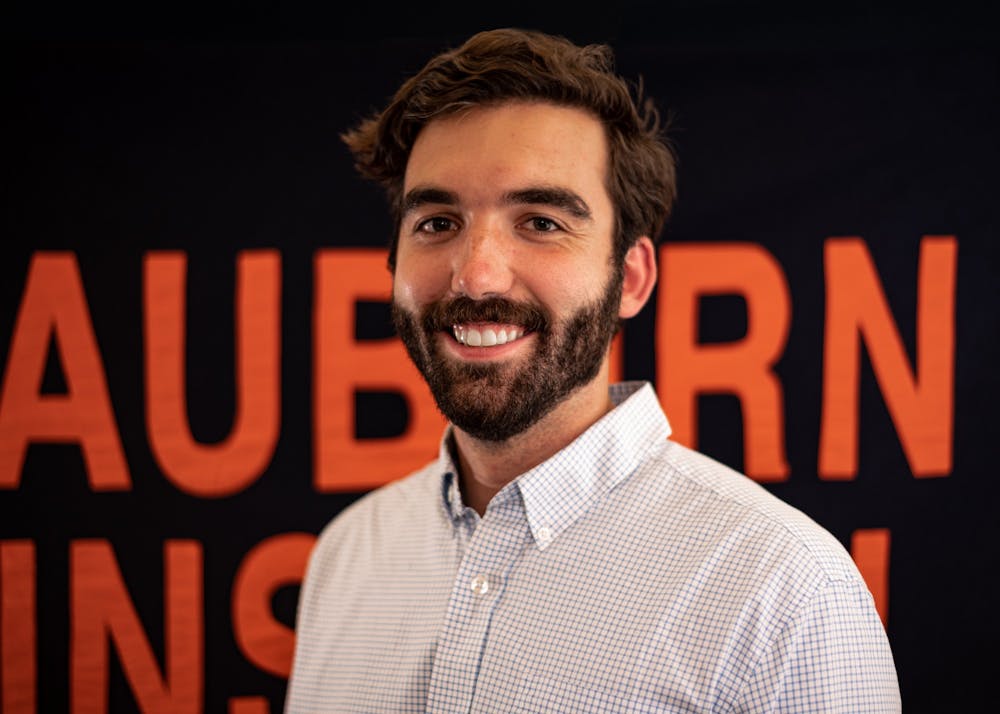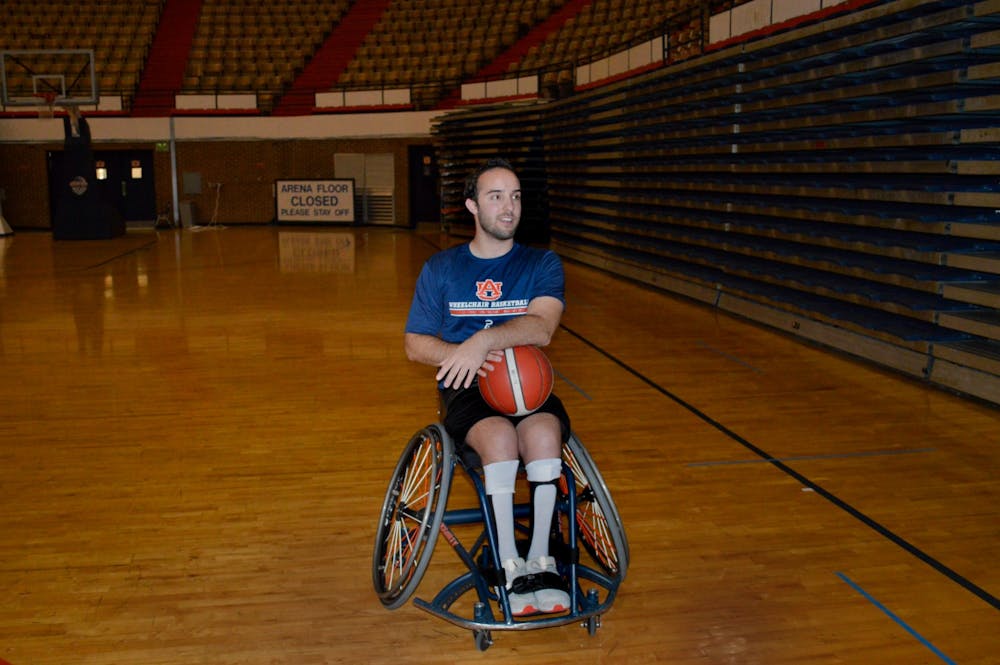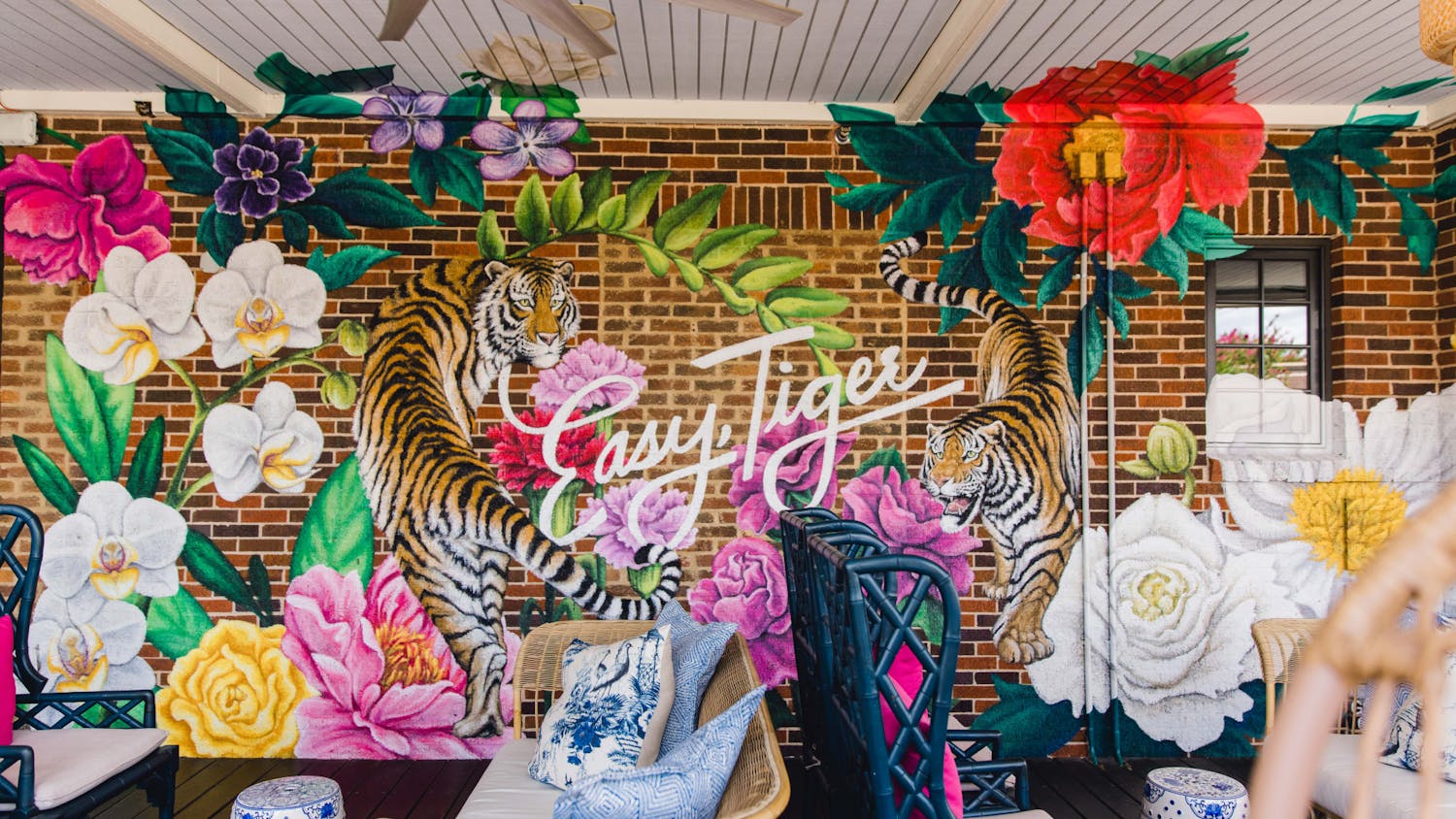Don’t think of Sam Armas as a wheelchair basketball player. Think of him as an athlete. He’s always been an athlete.
“Growing up, my first love was baseball,” he said.
He was a pitcher, and he said he was a pretty good one, too.
“I loved it,” Sam said. “I threw a lot of heat. I couldn't throw any breaking stuff, no curveballs, none of that, I just threw straight heat. And I loved it.”
But Sam has spina bifida, an exposure of the spinal cord at birth which leads to paralysis in the lower extremities, so as he got older, he couldn’t always keep up with able-bodied kids. He’d hit one to the outfield, he said, and sometimes they’d still throw him out at first.
But Sam, the athlete, the “sport-loving, athletic kid,” wasn't done with sports.
“I needed to play something,” Sam said. “I tried out adaptive swimming, and I loved that, I did that for a while. I tried out adaptive tennis, track and field — you name it, I tried it, pretty much.”
Along Sam’s journey with adaptive sports, he struck gold: wheelchair basketball.
“Eventually just tried out ball and fell in love with it, man," he said. "I just grew a passion for it.”
Sam started playing when he was in the sixth grade in Villa Rica, Georgia, and then played in high school for the Atlanta Junior Hawks, a team sponsored by the nonprofit organization BlazeSports. Most teams across the country are sponsored by nonprofit organizations, often those that advocate for the disabled community like BlazeSports. They're also typically located in big cities, which means that kids growing up in rural areas may not have the opportunity to play in high school.
“There’s many areas in the country that don’t have high school teams, or maybe they have like a middle school or a younger-kid team but don’t have a high school team,” Sam said.
During his senior year, he said he was recruited to play for 6–8 different colleges, and he landed at Auburn. Formed in 2010, Auburn's program was pretty new, and that’s part of what drew him in.
“It’s brand new,” Sam said. “Illinois has had a program since [about] WWII, so they’re like the Duke of wheelchair basketball. So it’s like, I can go there and just be a long part of that story, or I could start something here from the ground up and look back 10–20 years from now when they’re producing Paralympians and winning titles and be like, ‘I helped start that.’”
Auburn plays in the National Wheelchair Basketball Association with the nine other universities that make up the league. NWBA rules are based on those the NCAA sets for stand-up basketball. The teams are not NCAA teams, and Auburn’s team is also not part of the Athletics Department, which comes with certain downsides. He rattled off a few disadvantages the team is at compared to other sports teams — They’re not allotted athletic scholarships for their players. They're not provided meal swipes at the Wellness Kitchen like student athletes in the department are. But one disadvantage spoke more to the culture that surrounds him, what his peers have largely accepted without questioning.
“There’s kinda like a participation-trophy-type-sport feel about us, just because we’re playing in wheelchairs,” he said.
He dribbled around the court.
“Then they come out here, and they’re like ‘Oh, these guys are legit.’ You know what I mean?” he said. “I think a lot of people are shocked when they watch a game for the physicality, the speed and the intensity of each one of these games.”
Sam said he wants more people at their games, but because that notion persists, they’re fighting an uphill battle. So the best thing they can do is reach out to potential fans and hope they see them in the bleachers.
“Come out to a game, man,” he said. “Just come out and see what we’re about. Come in with an open mind, and I mean that’s how it starts for us. Because the more exposure, the more respect that we get, both within the student body and the University, things go up from there.”
What makes it so hard, he said, is that the team puts in work just like other athletes, without getting the respect afforded to those on the football, baseball and basketball teams. They get up at 4–5 a.m. for practice every weekday. They do offseason conditioning. They work hard. He specifically mentioned Ranley Clayton, another captain on the team, as an influence for everyone on the team to work harder.
“I thought I knew what hard work was,” he said, “until I came in here and I saw that work that Ranley puts in.”
Watching the team play, like in one of this year’s games against Alabama which you can find on the team’s Facebook page, you can see number 2 — that’s Sam — find a mismatch on the court and exploit it.
Last year, he became the first person in Auburn wheelchair basketball history to score 1,000 career points, according to the team's Facebook page. And since he’s only a junior, he still has time to earn more.
The future for the program is bright, he said. With scholarship money raised on Tiger Giving Day to attract recruits and led by head coach Robb Taylor, who has experience coaching the U.S. Paralympic Team, Sam’s confident in what Auburn’s team will be doing once he earns his master’s degree in public administration and his five years of eligibility run out. Hopefully he’ll be on his way to the Paralympic Team then, he said. After that, he wants to start a high school team.
“My goal is to go start a high school team in an area that needs one,” he said. “For example, right now, my dream is the state of Florida ... They have no high school teams across the whole state. So that’s an area that I want to try to fix.”
He wants to give others a chance to learn the game that he loves and help those who have disabilities see themselves as athletes. Right now, it starts with getting exposure for the sport and earning people's respect.
“We're athletes, we only play in chairs,” he said.
So when you think of Sam Armas, he said, think of him as an athlete first.
“It’s kinda like, you know me as a person before you know me for my disability,” Sam said. “Same thing for like, you know me as an Auburn athlete instead of a wheelchair basketball player. … I just want to be known as an athlete.”
Do you like this story? The Plainsman doesn't accept money from tuition or student fees, and we don't charge a subscription fee. But you can donate to support The Plainsman.

Evan Mealins, senior in philosophy and economics, is the editor-in-chief of The Auburn Plainsman.





